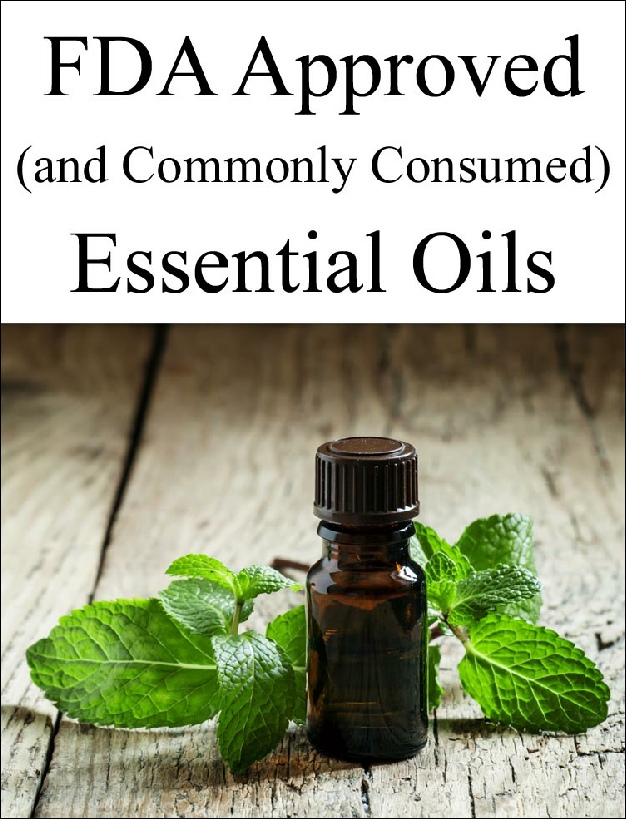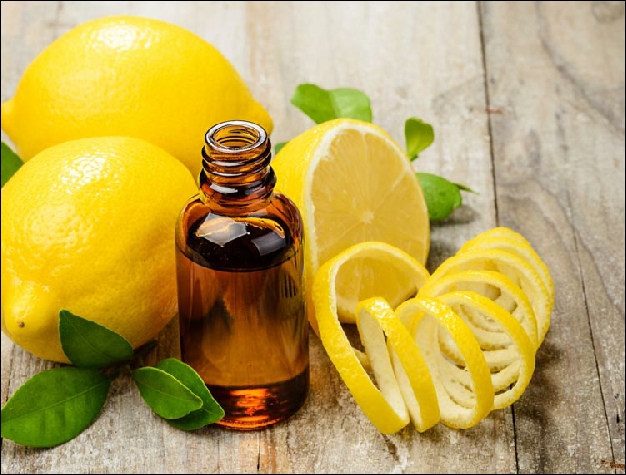

Be attentive to my words; incline your ear to my sayings . . . for they are life
to those who find them, and healing to all their flesh. (Proverbs 4:20-
Search This Site

Disclaimer
The information given on this website is for educational purposes only. Information and statements regarding
dietary supplements and natural products have not been evaluated by the Food and Drug Administration (FDA)
and are not intended to diagnose, treat, cure, or prevent any disease. . . . See Full Disclaimer

Kelsey Weber
-
Online Health Consultations


Follow by Email
Sign Up
Don't worry, we hate spam too, and promise to keep your email private!

Commonly Consumed Essential Oils
This page contains two different lists that feature essential oils that are commonly used internally. The first list includes essential oils that the FDA have approved as “generally safe for consumption”. The second list includes essential oils that do not have the FDA’s “stamp of approval” but are still commonly consumed.

Warning: Any essential oils that are marked with double asterisks (**) are considered “hot” essential oil that can cause extreme irritation and burning effects, so if you are taking these hot oils internally it is best to put the oil on bread or something that can help release it more slowly in the body.
Warning: Any essential oils that are marked with double plus signs (++) are considered highly toxic and should be used with extreme caution.
FDA Approved Essential Oils
Please note that just because an essential oil is “FDA approved” does not mean that it is safe to be taken in any amount or in any which way. Please refer to the following article for information on how to Consume Essential Oils Safely.
Anise (pimpinella anisum)
Basil (ocimum basilicum)
Bay Laurel (laurus nobilis)
Bergamot (citrus aurantium)
Cardamom (elettaria cardamomum)
Carrot (daucus carota)
** Cassia (cinnamomum cassia, c. burmanni, c. loureirii)
Celery (apium graveolens)
Chamomile (German or Hungarian) (matricaria chamomilla
Chamomile (Roman or English) (anthemis nobilis)
** Cinnamon Bark and Leaf (cinnamomum zeylanicum, c. cassia, c. loureirii)
Citronella (cymbopogon nardus)
Citrus peels (citrus spp.)
Clary Sage (salvia sclarea)
Coriander (coriandrum sativum)
Fennel (foeniculum vulgare)
Geranium (pelargonium graveolens, pelargonium spp., cymbopogon martini)
Ginger (zingiber officinale)
Grapefruit (citrus paradisi)
Hops (humulus lupulus)
** Hyssop (hyssopus officinalis)
Jasmine (jasminum officinale, jasminum spp.)
Juniper Berries (juniperus communis)
++ Lavender (lavandula officinalis, l. Latifolia)
Lemon (citrus limon)
** Lemon Grass (cymbopogon citratus, c. lexuosus)
Lime (citrus aurantifolia)
Mandarin (citrus reticulata)
Marjoram (majorana hortensis)
Neroli (citrus aurantium)
Nutmeg (myristica fragrans)
Orange (citrus sinensis, citrus aurantium)
Pennyroyal (mentha pulegium)
** Peppermint (mentha piperita)
** Rosemary (rosmarinus officinalis)
** Sage (salvia officinalis, s. triloba, s. lavandulaefolia)
Spearmint (mentha spicata)
Tangerine (citrus reticulata)
Tarragon (artemisia dracunculus)
** ++ Thyme (thymus vulgaris, t. serpyllum, t. Zygis)
Turmeric (curcuma longa)
Vanilla (vanilla planifolia, v. Tahitensis)
Ylang-
(Click Here for the Complete List of FDA Approved Essential Oils)
Other Essential Oils Commonly Used Internally
The list above contained essential oils that are considered by the FDA to be “generally safe for consumption”. But there are other essential oils that are commonly used internally that do not have the stamp of approval by the FDA.
If you wish to use any of the following essential oils internally I would recommend extreme caution.
Black Pepper
Cajeput
++ Camphor
** ++ Cloves
Cypress
Dill
++ Eucalyptus
Frankincense
Helichrysum
Myrrh
** Oregano
++ Tea Tree
++ Wintergreen
– – – – – – – – – – – – – – – – – – – – – – – – – – –
Taking essential oils internally can be dangerous!
Please refer to the following article for tips on how to do it safely:
Consuming Essential Oils Safely

– – – – – – – – – – – – – – – – – – – – – – – – – – –
Warning:
Do not take essential oils internally if you are pregnant, breast-
Always seek the advice of someone who is trained and qualified in this field if you have any major health concerns to take into consideration.
Do not take essential oils internally at the same time as taking prescription medication.
Do NOT allow children or babies to consume essential oils even in very small amounts!